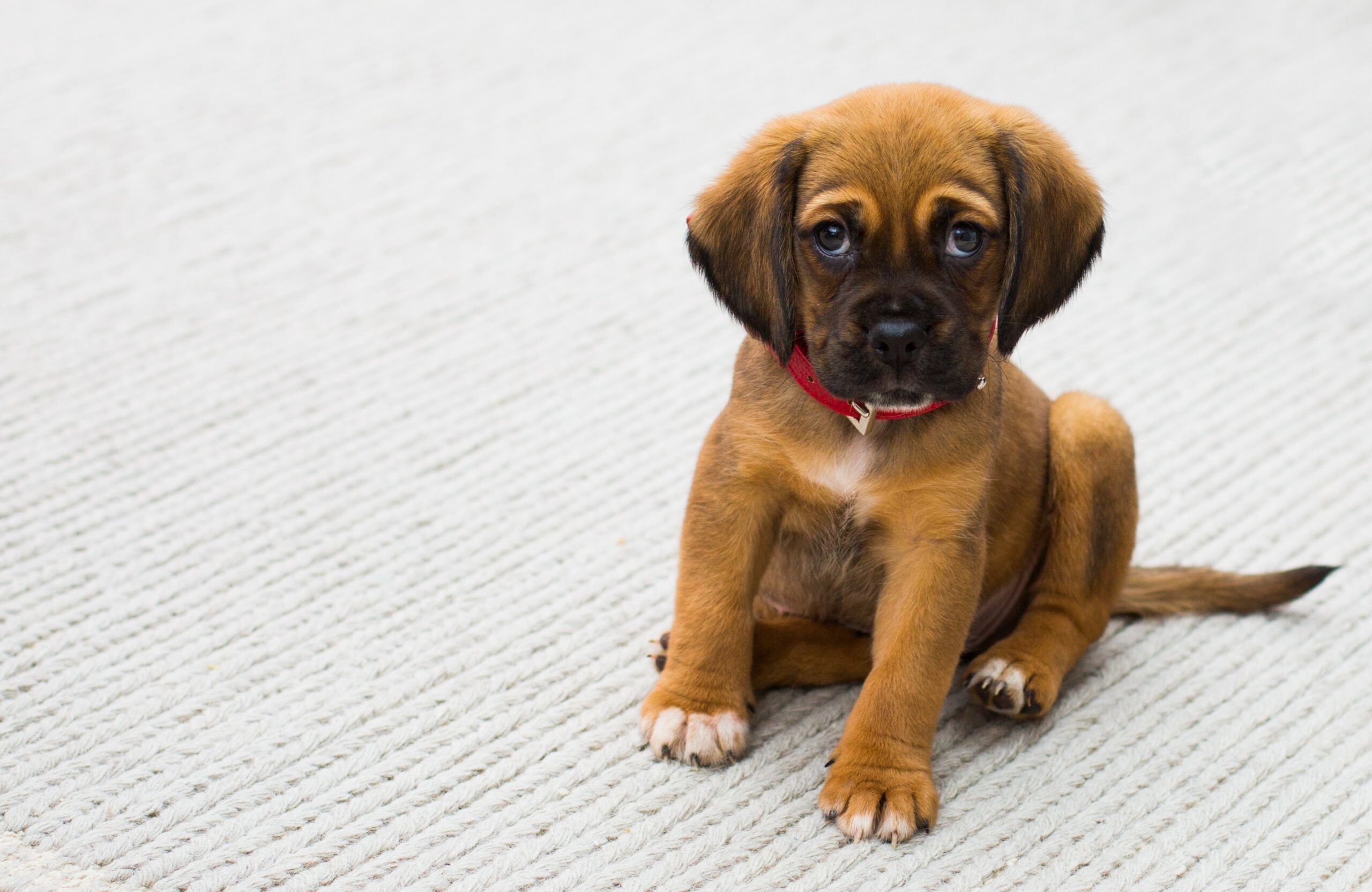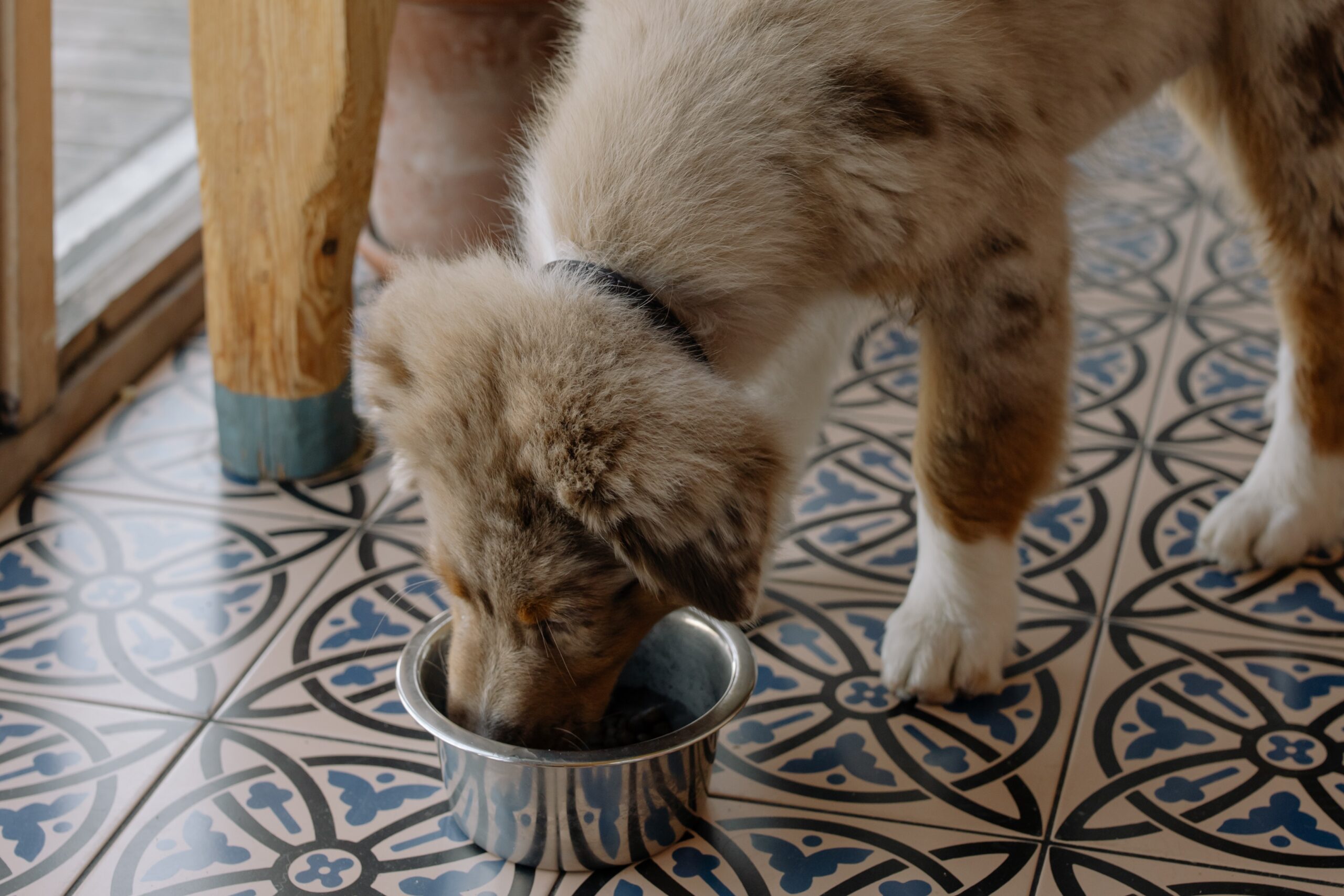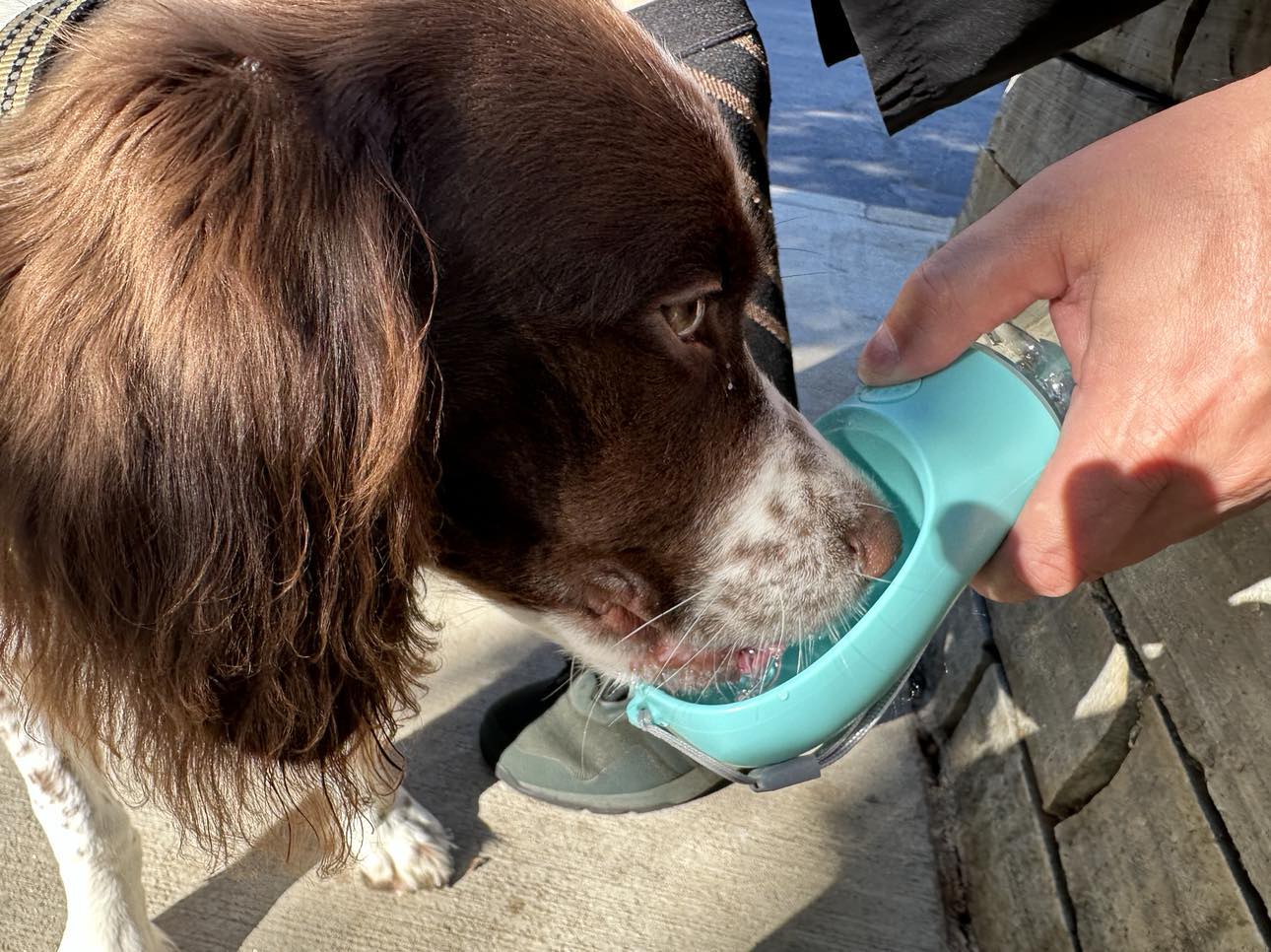Boarding and training puppies is a valuable service that many pet owners consider to help their furry companions develop good behaviors and social skills. These programs typically involve leaving the puppy in a specialized facility, where they receive professional training and care from experienced trainers. During their stay, the puppies engage in various training exercises and social interactions with other dogs and humans.
In this article, we delve into the question that many puppy owners ponder: What is the best age to board and train a puppy? We will explore the importance of early socialization and training, examine the various factors that influence a puppy’s readiness for training, and discuss the different boarding and training options available for puppies of different age groups. By understanding the optimal timing for boarding and training, puppy owners can make informed decisions that positively impact their pet’s behavior and overall development. So, let’s embark on this journey to discover the ideal age to board and train our beloved puppies!
Early Socialization and Training Benefits
Early socialization and training are crucial components of a puppy’s development, setting the foundation for a well-adjusted and well-behaved adult dog. Socialization involves exposing puppies to various people, animals, environments, and experiences in a positive and controlled manner. This exposure helps puppies become familiar with the world around them, reducing the likelihood of fear or aggression towards new situations later in life.
Training, on the other hand, teaches puppies essential commands and behaviors, such as sit, stay, come, and leash walking. By learning these commands early on, puppies understand what is expected of them and how to communicate effectively with their human companions.
Puppies go through several critical developmental stages during their early life. The primary stages include the neonatal stage (0-2 weeks), transitional stage (2-4 weeks), socialization stage (4-12 weeks), and juvenile stage (3-6 months). Each stage is characterized by specific behavioral and cognitive changes, and training during these periods can profoundly impact their behavior in adulthood.
During the socialization stage, which is the most critical period for early training, puppies are highly receptive to new experiences and learning. Proper socialization at this time can help them become confident and well-adjusted dogs, comfortable with various people, animals, and environments. Early training also fosters positive associations with learning and creates a strong bond between the puppy and their owner.
By starting training during these crucial developmental stages, puppy owners can shape their pet’s behavior in a positive direction, preventing undesirable habits from forming later on. Moreover, early socialization and training can help reduce the risk of behavior problems, such as fear, anxiety, and aggression, which are often more challenging to address in older dogs.
Potty Training and Crate Training Considerations
Potty training and crate training are two essential aspects of a puppy’s early education that play a significant role in their overall development and behavior. Both of these training processes are particularly relevant in the context of boarding and training programs for puppies.
Potty training involves teaching puppies to eliminate in appropriate places, such as outdoors or on designated potty pads. It is a fundamental skill that ensures cleanliness and convenience for both the puppy and the owner. Crate training, on the other hand, involves introducing the puppy to a crate as a safe and comfortable space, providing them with a den-like environment that can aid in house training and prevent destructive behaviors.
In a boarding and training setting, potty training ensures that puppies maintain good bathroom habits during their stay, while crate training provides a secure and familiar space for them to rest and relax in the absence of their owners. These training aspects not only facilitate a smoother boarding experience but also set the groundwork for a well-behaved and house-trained adult dog.
- Potty Training:
- The best age to start potty training is around 8 to 12 weeks, during the socialization stage when puppies are most receptive to learning.
- Challenges: Potty training requires consistency and patience. Puppies have small bladders and may need frequent bathroom breaks. Accidents may happen during the learning process, but positive reinforcement and a consistent schedule can help overcome challenges.
- Crate Training:
- The ideal age to begin crate training is also during the socialization stage, around 8 to 10 weeks.
- Challenges: Some puppies may initially resist being confined to a crate, leading to whining or barking. Gradual introduction and positive reinforcement can help puppies associate the crate with a safe and comfortable space. It’s crucial to avoid using the crate as a punishment.
It’s important to remember that every puppy is different, and the timing of training may vary based on their individual development and readiness. Early and consistent training, along with positive reinforcement, can lay the foundation for successful potty and crate training experiences during boarding and beyond.
Assessing Individual Puppy Readiness
Just like humans, each puppy has a unique personality and temperament that shapes their behavior and responses to different situations. Understanding and considering these individual traits are vital when determining a puppy’s readiness for boarding and training. Some puppies may be naturally outgoing and social, while others might be more shy and reserved. Their temperament can influence how they interact with trainers, other dogs, and unfamiliar environments.
By recognizing and respecting the individuality of each puppy, trainers and owners can tailor the training approach to meet their specific needs. A well-matched training program that aligns with a puppy’s personality and temperament is more likely to be successful, fostering a positive and productive learning experience.
Guidelines for Assessing a Puppy’s Readiness for Boarding and Training
- Observe Social Interaction: A puppy’s ability to interact with other dogs and people is an essential indicator of their social readiness. Look for signs of curiosity, friendliness, and appropriate play behavior during interactions. A puppy that shows healthy social behaviors is likely to benefit from a boarding and training program that involves group play and socialization.
- Assess Confidence Level: Confidence is crucial for a puppy’s ability to adapt to new environments and experiences. A confident puppy may explore new surroundings with curiosity and excitement, showing resilience in the face of mild stressors. On the other hand, a timid puppy may require a more gradual and gentle introduction to boarding and training.
- Handling and Sensitivity: Evaluate the puppy’s response to being handled and touched. A puppy that is comfortable with gentle handling is more likely to be receptive to training exercises that involve physical contact, such as grooming or leash walking.
- Focus and Attention Span: Assess the puppy’s ability to focus and follow simple commands. A puppy with a shorter attention span may need shorter and more frequent training sessions to maintain engagement and prevent frustration.
- Stress Response: Observe how the puppy reacts to new environments and experiences. Mild stress is a natural part of the learning process, but excessive fear or anxiety may indicate that the puppy needs more time and patience in their training journey.
- Response to Positive Reinforcement: Gauge the puppy’s response to positive reinforcement techniques, such as treats, praise, or toys. A puppy that eagerly responds to rewards is likely to be motivated and enthusiastic about training.
It’s essential to keep in mind that puppies are constantly developing, and their readiness for boarding and training may evolve over time. As such, ongoing assessment and flexibility in training methods are key to ensuring a positive and successful experience.
By carefully considering a puppy’s individual personality and temperament, puppy owners and trainers can create a supportive and nurturing environment that fosters growth, learning, and confidence. Join us in the next section as we explore boarding and training programs designed for different age groups, allowing puppies to thrive at their own pace.
Boarding and Training Programs for Different Age Groups
- Under 6 Months
For puppies under 6 months old, early socialization and basic training are of utmost importance. Boarding and training programs designed for this age group focus on introducing puppies to positive experiences with other dogs, people, and various environments. These programs typically emphasize puppy socialization, basic obedience training, and essential life skills.
The trainers in these programs use gentle and reward-based methods to teach puppies foundational commands like sit, stay, recall, and walking on a leash. They also expose the puppies to different stimuli, sights, and sounds, helping them become confident and well-adjusted individuals. Additionally, potty training and crate training are integrated into these programs to set a solid groundwork for good behaviors at home. - Between 6 and 12 Months
Puppies between 6 and 12 months old are at a critical stage of development where their energy levels and cognitive abilities are high. Specialized boarding and training programs for this age group build upon the foundational training taught during their earlier months and introduce more complex commands and challenges.
In addition to reinforcing basic obedience skills, these programs may focus on refining manners, improving impulse control, and strengthening recall responses even in distracting environments. Trainers may also incorporate agility exercises and interactive play sessions to engage the puppies’ minds and bodies, providing mental stimulation and physical exercise. - Over 12 Months
Boarding and training programs for older puppies beyond 12 months can still be beneficial, but they may come with some considerations. At this age, puppies might have already developed some behaviors, both good and undesirable. Training programs for older puppies often involve addressing and modifying existing behaviors while reinforcing positive ones.
The benefits of training older puppies lie in their increased attention span and ability to focus for longer periods. They can handle more complex training exercises and engage in more advanced activities. However, the success of the training largely depends on the puppy’s previous training and experiences.
While older puppies can still learn and adapt, it might take more time and patience to address any ingrained behaviors. Trainers may need to employ specialized techniques to overcome challenges and create a positive learning experience for the older puppies.
Ultimately, the right age for boarding and training depends on the individual puppy’s needs, developmental stage, and prior experiences. Early training provides the opportunity to shape behaviors from the start, while training older puppies can address specific challenges and refine existing skills.
Health Considerations
Before enrolling a puppy in a boarding and training program, ensuring their health and vaccination status is of utmost importance. Puppies are susceptible to various infectious diseases, and exposure to unfamiliar environments and other dogs can pose risks. Ensuring that puppies have received the necessary vaccinations helps protect them from contagious illnesses such as parvovirus, distemper, and kennel cough.
Additionally, a thorough health check by a veterinarian is crucial to confirm that the puppy is in good overall health and free from any underlying medical conditions. A healthy puppy is better equipped to handle the stress of training and socialization, ensuring a positive and successful experience.
Guidelines for Puppy Owners to Follow to Ensure Their Puppy’s Well-Being During the Training Process
- Vaccination Records: Before enrolling a puppy in a boarding and training program, ensure you have updated vaccination records. Most programs require proof of vaccinations, so check with the training facility about their specific requirements.
- Health Check-Up: Schedule a thorough health check-up with your veterinarian to ensure your puppy is in good health and free from any contagious diseases. Discuss any concerns or specific needs your puppy may have during the training process.
- Age and Development: Consider your puppy’s age and developmental stage when enrolling them in a training program. Some programs may have age restrictions or be more suitable for specific developmental phases.
- Gradual Introductions: Gradually introduce your puppy to the boarding and training environment to reduce stress and anxiety. Visit the facility beforehand, allow your puppy to explore and become familiar with the surroundings, and meet the trainers if possible.
- Positive Reinforcement: Choose a boarding and training program that uses positive reinforcement techniques and rewards. This approach promotes a nurturing and enjoyable learning experience for your puppy.
- Adequate Rest and Nutrition: Ensure that your puppy gets adequate rest and a balanced diet during the training period. A well-rested and well-nourished puppy is more receptive to learning and less prone to stress.
- Communication with Trainers: Maintain open communication with the trainers throughout the training process. Share any relevant information about your puppy’s behavior, preferences, and progress, allowing the trainers to tailor the training to your puppy’s individual needs.
- Supervision and Interaction: If possible, observe some of the training sessions to understand the techniques used and see how your puppy responds to training. Some programs may also allow you to participate in training sessions to reinforce commands at home.
By following these guidelines, puppy owners can ensure their furry companions have a safe and positive training experience. A well-rounded and healthy puppy will be better prepared to learn and adapt, setting the stage for a lifetime of good behavior and a strong bond between puppy and owner.
Personalized Training Plans
Just as each puppy has a unique personality, temperament, and developmental trajectory, a one-size-fits-all training approach may not be the most effective. Personalized training plans that cater to each puppy’s individual needs and learning pace are invaluable in achieving successful and lasting results.
A personalized approach allows trainers to understand a puppy’s strengths, weaknesses, and motivations. By recognizing these factors, trainers can adjust their methods, exercises, and reinforcement techniques to suit the specific puppy. This tailored approach helps build a stronger connection between the trainer and the puppy, fostering trust, confidence, and a positive learning experience.
Moreover, some puppies may require more time to grasp certain commands or adjust to new environments. A personalized training plan allows for patience and flexibility, ensuring that the training journey is enjoyable and stress-free for both the puppy and the trainer.
Benefits of Individual Attention and Small Group Settings for Effective Training.
- Individual Attention:
- One-on-one attention from the trainer allows for a deeper understanding of the puppy’s behavior and learning style.
- Trainers can focus on specific areas of improvement and address any challenges that arise during the training process.
- Individual attention also ensures that the puppy receives consistent feedback and reinforcement.
- Small Group Settings:
- In a small group setting, puppies have the opportunity to socialize and learn from each other.
- Group interactions mimic real-life situations, providing valuable socialization experiences.
- Puppies can observe and learn from their peers, leading to accelerated learning and behavioral modeling.
The combination of individual attention and small group settings creates a well-rounded training environment. Puppies receive personalized coaching while also benefiting from positive interactions with other dogs, fostering social skills and proper behavior in a group dynamic.
Additionally, small group settings offer a controlled and safe environment for socialization. Trainers can closely monitor interactions and guide the puppies through appropriate play, ensuring positive experiences that contribute to their overall development.
Ultimately, personalized training plans that incorporate individual attention and small group settings promote a well-balanced and comprehensive learning experience for each puppy. This tailored approach empowers puppies to reach their full potential and develop into well-mannered, confident, and socially adept adult dogs.
Trainer Qualifications and Experience
Selecting the right trainer for puppy boarding and training is a crucial decision that can significantly impact the success of the training process and the well-being of your puppy. Experienced and reputable trainers possess the knowledge, skills, and expertise necessary to guide your puppy through their learning journey in a safe, effective, and positive manner.
An experienced trainer has a deep understanding of canine behavior, communication, and learning processes. They can accurately assess your puppy’s needs, tailor training plans accordingly, and adapt their methods to suit individual personalities. A reputable trainer will prioritize the welfare of the puppy, using gentle, science-based, and reward-based training techniques that promote trust, confidence, and cooperation.
Furthermore, a skilled trainer can recognize early signs of stress, fear, or anxiety in puppies and adjust the training environment accordingly. They know how to create a supportive and nurturing setting, allowing your puppy to thrive and progress at their own pace. The guidance of an experienced and reputable trainer fosters a positive training experience that lays the groundwork for a well-adjusted and well-behaved adult dog.
Guidelines for Evaluating Trainers’ Credentials and Methods
- Education and Certification:
- Look for trainers with formal education in animal behavior, training, or related fields. Certifications from reputable organizations such as the Certification Council for Professional Dog Trainers (CCPDT) or the International Association of Animal Behavior Consultants (IAABC) are a positive sign of a qualified trainer.
- Experience and Track Record:
- Inquire about the trainer’s years of experience working with puppies and their success in achieving positive outcomes.
- Ask for references or testimonials from previous clients to gain insight into the trainer’s approach and effectiveness.
- Training Methods:
- Discuss the trainer’s methods and ensure they align with your preference for positive reinforcement and reward-based techniques.
- Avoid trainers who rely on harsh or punitive methods, as these can lead to fear and anxiety in puppies.
- Observation:
- Observe a training session conducted by the trainer to gauge their interaction with puppies and their teaching style.
- Pay attention to how they handle the puppies and whether they create a supportive and positive learning environment.
- Communication and Transparency:
- A good trainer should be willing to communicate openly and honestly about their approach, methods, and expectations for the training process.
- They should be receptive to questions and address any concerns you may have.
- Licensing and Insurance:
- Ensure the trainer has appropriate licenses and insurance coverage, which demonstrates professionalism and accountability.
By thoroughly evaluating trainers’ credentials and methods, you can confidently choose a qualified and compassionate professional to guide your puppy’s training journey. The right trainer will not only help your puppy develop essential skills but also foster a strong bond between you and your furry companion.
Transitioning Back Home
Tips for a Smooth Transition Once the Puppy Returns Home After Boarding and Training
After completing a boarding and training program, the transition back home is a critical phase that can impact the puppy’s progress and behavior. To ensure a smooth reintegration, consider the following tips:
- Gradual Adjustment: Allow your puppy some time to adjust to their familiar home environment. They may need a day or two to readjust after being in a new setting.
- Consistency: Maintain consistency in routines, feeding schedules, and training commands used during the program. Consistency helps reinforce the lessons learned and prevents confusion for the puppy.
- Reinforce Training: Continue to practice the commands and behaviors learned during the training program. Offer positive reinforcement and rewards to encourage consistent responses from your puppy.
- Implement Daily Training: Incorporate short training sessions into your daily routine to keep the learning momentum going. Frequent, brief sessions are more effective than infrequent, lengthy ones.
- Use Positive Reinforcement: Focus on positive reinforcement to motivate your puppy. Praise, treats, and affection are powerful tools to encourage desired behaviors.
- Be Patient: Remember that learning is an ongoing process. Be patient with your puppy and avoid punishment for mistakes. Encourage and support their progress.
How to Continue Training and Reinforce the Lessons Learned During the Program
- Review and Practice: Review the training materials and notes provided by the trainer. Continue practicing the exercises and commands, gradually increasing the level of difficulty.
- Socialization Opportunities: Continue exposing your puppy to new environments, people, and dogs. Maintaining socialization helps prevent fear and reactivity toward new experiences.
- Implement Training in Real-Life Situations: Apply the training in real-life situations, such as walks, outings, or visits to the park. Reinforce good behavior consistently, both at home and in public settings.
- Continue Training Classes: Consider enrolling in advanced training classes or workshops to build upon the foundation established during the boarding and training program. Ongoing training can deepen the bond between you and your puppy and improve their skills.
- Encourage Play and Exercise: Playtime and physical exercise are essential for a puppy’s mental and physical well-being. Engaging in interactive play and exercise sessions can reinforce positive behaviors and channel their energy positively.
- Monitor Progress: Keep track of your puppy’s progress and celebrate their successes. Stay attuned to any challenges or areas that may require additional attention and work on them gradually.
Remember that training is a lifelong journey. The lessons learned during the boarding and training program are just the beginning of a lifetime of learning and growth for your puppy. The bond you form and the positive reinforcement you provide will create a well-rounded, happy, and well-behaved companion.
Conclusion
In our exploration of the best age for boarding and training puppies, several key points have emerged. Early socialization and training are of paramount importance, as puppies are most receptive to learning during their socialization stage, typically between 4 and 12 weeks old. During this critical period, puppies benefit from exposure to various experiences, people, and other dogs, which helps shape their behavior and temperament positively.
Personalized training plans, tailored to each puppy’s unique personality, are instrumental in creating a positive and successful learning experience. Reputable and experienced trainers play a significant role in guiding puppies through their training journey, using positive reinforcement techniques and individualized attention to foster trust, confidence, and cooperation.
As responsible puppy owners, it is essential to recognize that each puppy is an individual with their own pace of development and unique characteristics. By considering their puppy’s individual needs, temperament, and developmental stage, owners can make informed decisions about the timing and approach to training.
Early socialization and training are invaluable investments in a puppy’s long-term development and well-being. Through early socialization, puppies become well-adjusted and confident adults, capable of navigating the world with ease and comfort. Early training builds the foundation for good behavior, effective communication, and a strong bond between the puppy and their human family.
The benefits of early socialization and training extend far beyond puppyhood, contributing to a harmonious and rewarding relationship between owner and dog throughout their lifetime. The positive impact of training reaches beyond mere obedience, fostering a profound understanding and connection between human and canine companions.










